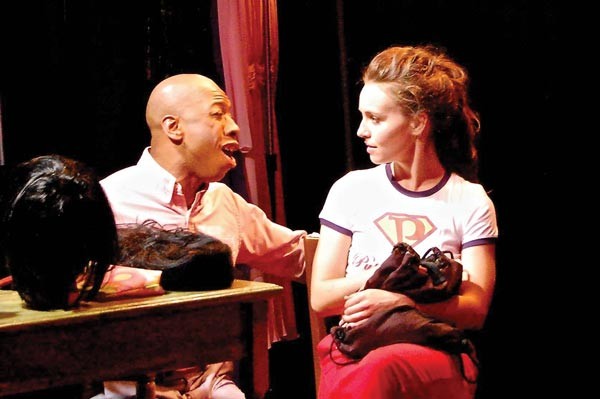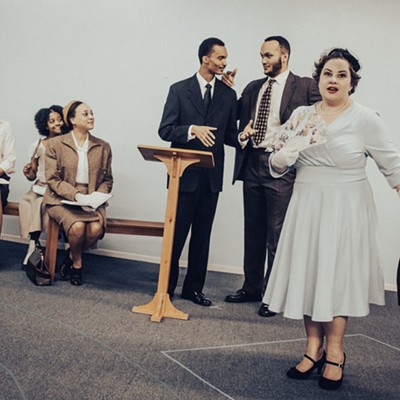Last year, Pittsburgh playwright C.S. Wyatt's The Gospel Singer got a staged reading as part of Bricolage Productions' In the Raw series. Director and actor Monteze Freeland saw that performance and decided to bring the show to life. So this year, Freeland and Justin Lonesome launched their new theater company, The Lab Project, with the premiere production of The Gospel Singer.
But while Freeland and Lonesome are two of Pittsburgh's pluckiest theater artists, unfortunately they can't do much with this problematic script.
Wyatt's protagonist is Isaac, who is the choir leader of his church in central California. But his actual job is as "Ruthie," the area's best female jazz singer and the premier attraction at The Eden Club, a gay bar on the outskirts of town.
The pastor of the predominantly African-American church is fine with Isaac's night job, but the fire-breathing white pastor of a nearby evangelical church is adamant: Banish Isaac and shut down the Eden.
In addition to crafting the script, Wyatt, along with John Gresh and Mils M.J. James, wrote the numbers Ruthie sings (which are quite entertaining), while traditional spirituals are performed during the church sequences.
James also appears as Isaac/Ruthie and sings with a powerful voice. Gresh plays the owner of the Eden, providing needed laughs and energy. Charles Timbers and Ken Lutz are the dueling preachers, and each brings solid conviction to his role. In supporting parts, Michael Young and M. Kay Reagle supply a collective ton of sincerity.
I can't overstate how much I wish I could tell you that I enjoyed the evening. This scrappy little troupe needs as much encouragement as possible ... but as a calling card, this production isn't doing them any favors.
Freeland's direction feels hesitant, listless and lacking in energy. And Wyatt's script is, among other things, bloated and overlong. It's three acts. Three acts! You're allowed to stage three-act plays only if (a) what you're saying requires three acts to say (which this doesn't) or (b) you're George S. Kaufmann ... and he died in 1961.
But even dead for five decades, Kaufmann still has more spark that this curiously overwritten but underdeveloped script. It lacks insight and its dramatic fuel offers only shopworn arguments.
I wish The Lab Project all the best and look forward to its next production.















